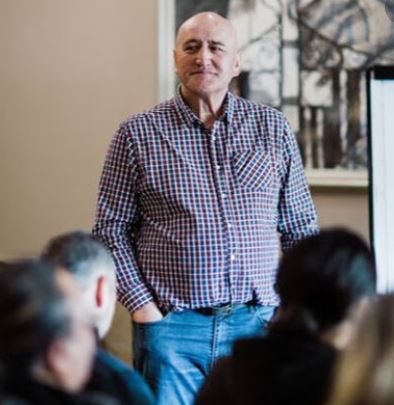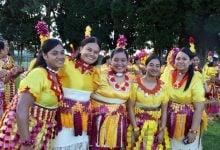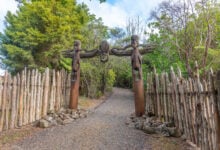Historic agreement to improve outcomes for Māori

A new five-year agreement was signed on Friday 27 November between Ngā Kura ā Iwi o Aotearoa and the Ministry of Education to address educational inequity and increase positive outcomes for Māori.
More than 20 MOE officials and representatives together with 80 leaders of Ngā Kura ā Iwi o Aotearoa came together last week to sign two documents that underpin a strong working relationship between these two organisations.
We value the strong relationship we have with Ngā Kura ā Iwi o Aotearoa and also recognise there is more we must do to ensure positive education outcomes for all ākonga Māori.
“This new funding agreement shows our intent to create equity within the system, while also providing Ngā Kura ā Iwi o Aotearoa greater autonomy and agency to grow” said Iona Holsted Te Tumu Whakarae mō te Mātauranga, Secretary for Education.
Named the Kua Ea Outcomes Agreement, this pact aligns the strategic priorities of Ngā Kura ā Iwi o Aotearoa with the Government’s priorities for Māori education and outlines what Ngā Kura ā Iwi expects to achieve within the next five years to November 2025.
“Ngā Kura ā Iwi o Aotearoa has developed a strategy to help to address the many barriers to success for our Uri and our communities. We need the support of the Government to achieve it. Kua Ea is an opportunity for the Ministry of Education to continue to partner with Ngā Kura ā Iwi to progress towards equity with the wellbeing of Uri, whānau and Māori communities at the centre” said Pou Kōkiri of Ngā Kura ā Iwi Watson Ohia.
The relationship between the Ministry of Education and Ngā Kura ā Iwi o Aotearoa is based on ‘Mana Ōrite’ whereby the two organisations work in partnership to achieve outcomes that are determined by Ngā Kura ā Iwi o Aotearoa. Established five years ago with the Minister of Education of the time Hon.Hēkia Parata and Ngā Kura ā Iwi leaders Pem Bird, Arihia Stirling and Waimatao Murphy, ‘Te Kawa Whakapūmau’ outlines the commitment to ‘Mana Ōrite’.
“We look forward to continuing our work alongside Ngā Kura ā iwi o Aotearoa. As autonomous, independent educators for their iwi taketake, they are leading the way for their people, and challenging us to shift our thinking and the way we work with Māori, iwi and whānau. We value this relationship,” said Holsted.









